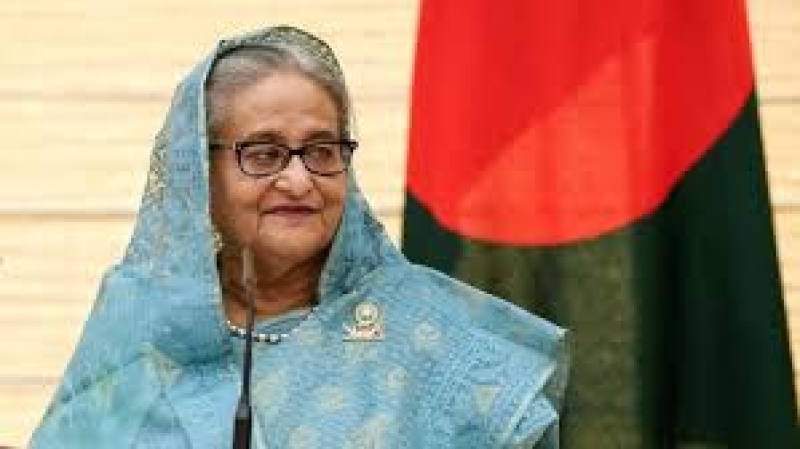- CA Yunus pays homage to Liberation War martyrs on Victory Day |
- Bangladesh capital market extends losing streak for second day |
- Bangladesh celebrates Victory Day Tuesday |
- 'Different govts presented history based on their own ideologies': JU VC |
India Likely to Reject BD’s Request for Hasina’s Extradition: Sources

India is unlikely to respond positively to Bangladesh's request for the extradition of former Prime Minister Sheikh Hasina, sources familiar with the matter suggest. These sources note that Dhaka has not completed essential formalities necessary for advancing such a request.
The extradition plea was delivered through a note verbale, an unsigned diplomatic communication, by the Bangladesh High Commission in New Delhi to India's Ministry of External Affairs on December 23. This came amid increasing tensions between the two countries, especially following the formation of an interim government in Bangladesh led by Nobel laureate Muhammad Yunus.
A note verbale, regarded as one of the least formal diplomatic channels, is rarely employed for matters as sensitive as extradition requests, the sources indicated, speaking anonymously.
Sheikh Hasina, 77, has lived in India since she stepped down during widespread protests led by student groups in Bangladesh, fleeing Dhaka under intense pressure. Yunus and other leaders within Bangladesh's interim administration have pointed to Hasina’s continued presence in India and her vocal exile comments as a growing point of discord between the two nations.
The extradition demand is also viewed in certain quarters of New Delhi as "public posturing" by the interim government, aimed at placating domestic constituencies, particularly influential student groups, who are pushing for Hasina’s return. According to sources, such political maneuvering suggests that the request may not be a serious legal pursuit.
"Extradition is a complex process, requiring obligations from both the requesting and receiving parties. The individual subject to the request also has legal recourse," one source noted, adding that Hasina has yet to challenge the request legally, a right she could exercise.
Moreover, the India-Bangladesh extradition treaty of 2013 allows for requests to be denied. Article 6, for instance, includes a "Political Offence Exception," which permits refusal if the alleged offense is of a political nature. Article 8 further enables refusal if the accusation is deemed to lack good faith or is not in the interest of justice.
India's Ministry of External Affairs confirmed receipt of the note verbale from Bangladesh on December 23 but declined to comment further on the matter.
The diplomatic response comes shortly after a visit by India's Foreign Secretary Vikram Misri to Dhaka, where he emphasized India's commitment to a positive and constructive relationship with Bangladesh, based on mutual respect and sensitivity to each other's concerns. Misri reaffirmed India’s support for a democratic, stable, and inclusive Bangladesh, and highlighted ongoing cooperation in areas such as trade, energy, and connectivity that benefit the Bangladeshi people.
Despite ongoing concerns in India about the treatment of Hindus and other minorities in Bangladesh, recent statements from Bangladesh's military leadership indicate a shift in tone. In an interview published on January 1, Bangladesh Army Chief General Waker-Uz-Zaman stated that Bangladesh will not take actions contrary to India's strategic interests. He underscored the importance of a fair and balanced relationship between the two neighbors.
Bangladesh's de facto foreign minister, Touhid Hossain, also discussed the issue of extradition, indicating that while it is a significant matter, it is one of many bilateral issues that both countries are addressing. "We will proceed with these issues side by side," Hossain remarked in response to questions about the potential impact of India's rejection of the extradition request.
Positive Development: In a sign of improving relations, India and Bangladesh recently announced the mutual exchange of 185 fishermen detained for crossing the international maritime boundary. This exchange, which includes 95 Indian fishermen and 90 Bangladeshi fishermen, is set to take place on January 5, signaling a rare positive development in otherwise strained ties.
The Indian Ministry of External Affairs stated that the exchange was a result of several Indian fishermen being detained by Bangladesh for inadvertently crossing into its waters. Similarly, Indian authorities had arrested Bangladeshi fishermen for similar offenses. The repatriation will also involve the exchange of fishing vessels detained by both sides, reinforcing the cooperative efforts to maintain peace and goodwill in their maritime relations.

